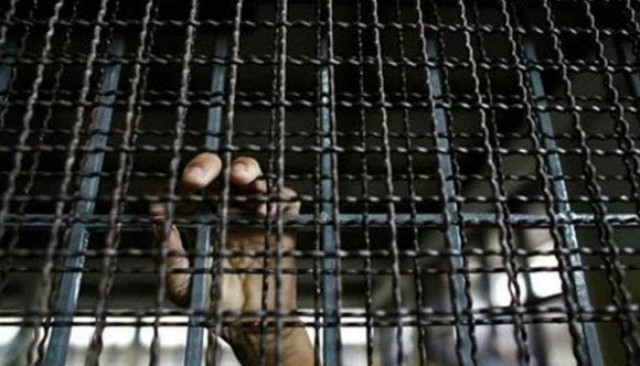After 26 years on death row, ex-convicts walk free
The two men were accused of twin bomb blasts that rocked Lahore in 1987

PHOTO: REUTERS
Just recently, the two had their capital punishment sentences overturned by the Supreme Court of Pakistan. The suspects were sentenced to death by a trial court in 1991 and their appeal was even dismissed by the Lahore High Court in 2002. However, years later in 2017, once their appeal reached the SC, the apex court found gaps in the confessional statements and overturned the verdict.
Flawed justice system: 10% of death row convicts children: report
The two were allegedly involved in twin bomb blasts which killed six people and injured several others some 30 years ago. A full bench of the Supreme Court of Pakistan, headed by Justice Manzoor Ahmad Malik, Justice Sardar Tariq Masood and Justice Mazhar Alam Khan Miankhel, mentioned that lacunas pointed out in the confessional statement of the accused, by their counsel, were well founded.
FIRs against the two were registered at two different police stations. The first was filed at the Railway police station, while the second was registered at Badami Bagh on the same day after attacks on the Lahore Railway Station and a General Bus Stand. The convicts, Ghulam Sakhi and Rehmat Ali, were sentenced to death by a trail court and imposed a fine of Rs.10,000. In case of nonpayment, the convicts would have to endure an additional year of imprisonment each.
The complainant, Pakistan Railways Station Master Pervez Mehmood, registered FIR under sections 302/307 of the PPC at the Railways Police Station of Lahore district. He contended that on July 5, 1987, two bomb blasts occurred at a taxi stand outside the railway station. The second one, he added, occurred on Platform II and this resulted in the death of six people, while several others were seriously injured.
The second FIR 234/1987 was registered at Badami Bagh police station on the same day. It stated that an explosion took place at the Lorry Adda and a number of people suffered injuries. The FIR was registered under the Explosives Substances Act 1908.
The main premise of the arguments of the appellants’ counsels before the Supreme Court was that their clients were not named in the FIRs and the confessional statements were not recorded in accordance to provisions of Section 364 of the Code of Criminal Procedure.
It was also stated that the court relied on the statement of one Zahir Shah who was declared a hostile witness by the prosecution. They argued that the appellants have been made scapegoats and the prosecution lacked concrete evidence. The lawyers maintained that under these circumstances, the conviction of the petitioners should be overturned.
It was also mentioned in the verdict that prosecution witness Sakina Bibi’s testimony had a number of gaps. In addition, the statement of another prosecution witness, Gulsmastan Khan, also suffered from a number of lacunas sans any plausible explanation.
It was further stated that having through the confessional statements of both the appellants from the original record of the trial court, we are of the view that the lacunas pointed out by the counsel for the appellants in the confessional statements of the appellants are well founded.
Nazar Hussain (prosecution witness 19), after recording the statement of appellant Ghulam Sakhi, failed to give a proper certificate at the end of the statement as required under Section 364 of the CrPC. Moreover, he admitted during cross examination that he did not mention anywhere that the statement was recorded in Pashto language and no certificate was given to this effect. It was also not mentioned that the statement was read over to the appellant in Pashto.
Sultan Khan (prosecution witness 15), who recorded the confessional statement of Rehmat Ali, however, gave a certificate at the end of the statement as mandated by Section 364. However, he stated before the trial court that the appellant was an Afghan national and spoke Pashto. Sultan stated that the confessional statement was given in Pashto, but the official translated it into Urdu.
Temporary respite: LHC stays execution of military court convict
He admitted that he did not mention this action in his statement (Ex.PL). He further admitted that thumb impressions of appellant were put on page numbers 1,6 and 7 of the Ex.PL, but the other pages do not have the fingerprints.
The court stated that for the reasons mentioned above, it reached the inevitable conclusion that the prosecution failed to prove its case against the appellants beyond doubt. Therefore, the criminal appeals were allowed and the impugned judgments of the trial court were set aside.
Published in The Express Tribune, July 6th, 2017.



















COMMENTS
Comments are moderated and generally will be posted if they are on-topic and not abusive.
For more information, please see our Comments FAQ